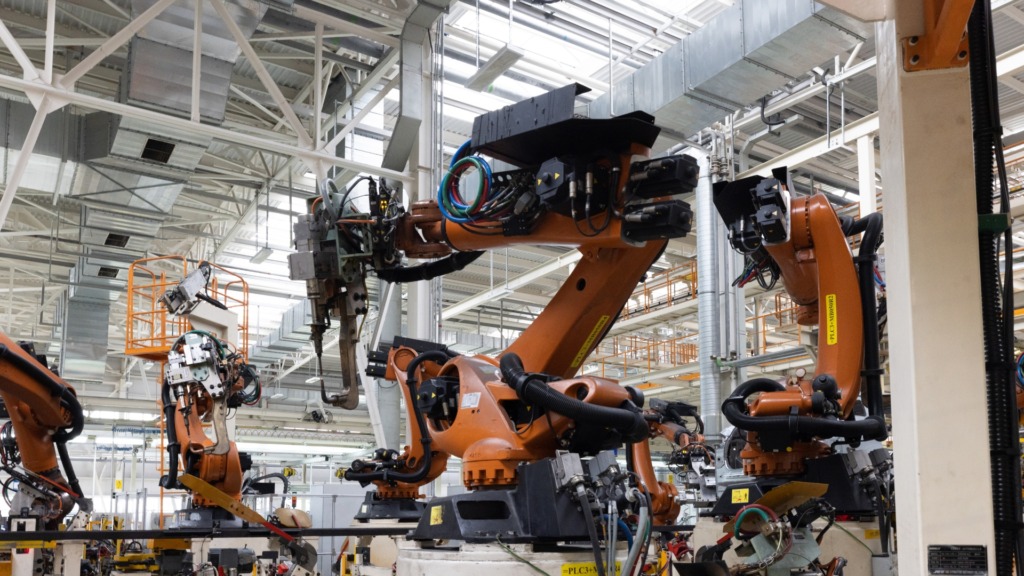Inside the AI-native startup boom transforming healthcare, finance, logistics, and education in Asia
AI-first startups in APAC are transforming core industries by redefining business models, boosting efficiency, and opening new market opportunities.

Across the Asia-Pacific region, a new wave of AI-first startups is altering how industries operate. Built with artificial intelligence at their core, these ventures are layering AI onto legacy systems and creating entirely new ways to deliver value.
Table Of Content
- AI in healthcare is accelerating diagnosis and democratising access
- Fintech is expanding credit access and automating compliance at scale
- Manufacturing and robotics are shifting towards intelligence and flexibility
- Retail and logistics are moving toward full-stack automation
- Education is being re-engineered with personalised AI-driven learning
- What Southeast Asia’s business leaders should take away
Unlike traditional firms tied to high overheads and rigid models, AI-native companies operate with leaner structures, data-driven insights, and scalable platforms. These startups are transforming existing workflows and expanding access to previously underserved markets, from remote diagnostics to micro-lending.
In 2024, global AI startups attracted approximately US$131.5 billion in venture capital investments, a significant increase from previous years. While specific figures for the Asia-Pacific region are not readily available, the region has seen a notable uptick in AI startup funding, reflecting growing investor interest. This signals a regional realignment, where startup ecosystems in countries like Singapore, India, China, and South Korea are becoming drivers of business model reinvention.
AI in healthcare is accelerating diagnosis and democratising access
AI startups are transforming how healthcare diagnostics and treatments are developed and delivered. Their focus is on improving accuracy and increasing reach and speed in ways that traditional providers struggle to match.
For instance, India’s Qure.ai uses deep learning to analyse chest scans and detect conditions such as tuberculosis and lung nodules. Its AI can interpret medical images within seconds, enabling fast triage in hospitals and rural clinics alike. The company operates on a diagnostics-as-a-service model, charging healthcare providers per scan. With over 90 countries using its tools and a recent US$65 million Series D round, Qure.ai is expanding partnerships with global pharma firms such as AstraZeneca.

Meanwhile, Hong Kong-based Insilico Medicine uses generative AI to reduce drug discovery timelines from years to months. Its platform rapidly designs and evaluates new compounds, and currently supports a pipeline of over 30 drug candidates. The company reached a valuation of over US$1 billion in 2025, with its AI-designed pulmonary fibrosis treatment now in Phase II trials.
These startups aren’t simply supporting clinicians but changing how medical value is created and delivered. While large healthcare incumbents respond through joint ventures and in-house AI teams, many are also choosing to partner or license these scalable AI platforms. For emerging markets and overburdened systems, this shift brings expert-level care closer to more people than ever.
Fintech is expanding credit access and automating compliance at scale
Beyond healthcare, financial services are also undergoing rapid change. AI-native fintechs are streamlining decisions, reducing risk, and increasing access, especially for those previously excluded from the system.
In Thailand, Abacus Digital uses machine learning and alternative data to issue nano-loans via its MoneyThunder app. With loan amounts starting from as little as THB800, the app serves individuals overlooked by traditional lenders. One-third of its users had been rejected by banks in the prior six months. Its AI model assesses risk in minutes, with repayment data showing more than half of its borrowers improved their income within a year. Abacus has already lent over THB24 billion and reached profitability — a rare feat in regional fintech.
Singapore-based Silent Eight, on the other hand, applies AI to combat financial crime. Its platform automates the screening of transactions and names against global watchlists, using natural language processing to identify fraud patterns. Major global banks such as HSBC and Standard Chartered have adopted its system, with some also investing in the company. Silent Eight significantly cuts costs and response times by replacing manual compliance checks with AI workflows.
These startups operate with lower fixed costs, no legacy systems, and real-time intelligence. Regulators in APAC are gradually adapting to AI-driven models, while traditional banks are pressured to modernise or risk losing relevance in emerging markets.
Manufacturing and robotics are shifting towards intelligence and flexibility
While finance focuses on digital transactions, AI also profoundly impacts physical industries, particularly manufacturing. Here, the emphasis is on real-time decision-making, predictive operations, and adaptive automation.
Japan’s Mujin has developed an AI controller that allows robots to plan and execute complex motions without human programming. This allows robots to unload trucks, pack varied items, and respond to dynamic environments in real-time. The MujinController is already deployed in over 1,000 systems, with clients including ABB and Yaskawa. Its software-first model contrasts with traditional robotics firms that sell fixed-purpose machines.

In Singapore, Groundup.ai uses acoustic sensors and AI to listen to machinery and detect early signs of failure. This predictive maintenance system enables operators to fix problems before breakdowns occur, avoiding costly disruptions. The startup’s subscription pricing and easy deployment make it accessible even for mid-sized manufacturers.
The shift toward AI-powered manufacturing is cutting costs, increasing supply chain responsiveness, and adapting to labour shortages. Legacy equipment makers respond by retrofitting their systems with AI or acquiring startups outright. As factories in Southeast Asia seek greater efficiency, these AI-first platforms offer an immediate competitive edge.
Retail and logistics are moving toward full-stack automation
The transformation continues downstream into the movement and sale of goods, where AI brings precision, speed, and automation to the retail and logistics sectors.
Trax, based in Singapore, uses computer vision to track product placement, pricing, and stock levels on store shelves. It delivers real-time data to brands and retailers through smartphone cameras or in-store sensors. This replaces periodic audits with continuous visibility. Clients include Coca-Cola, Nestlé, and Unilever. Trax has also raised over US$1 billion and operates on a SaaS model, providing analytics dashboards and alerts to improve in-store execution.
Visual search platform ViSenze helps consumers find products using images. Shoppers can upload a photo of a dress or shoe and receive instant matches from online catalogues. Retailers like Zalora, Rakuten, and Uniqlo use ViSenze’s engine to personalise the customer journey and increase conversion. It also powers visual search tools in smartphone apps and online marketplaces.
In logistics, China’s Inceptio leads in autonomous trucking, with over 2,000 AI-powered trucks deployed commercially. These vehicles have already logged 200 million kilometres and deliver cost savings of up to 50% on labour. Meanwhile, GreyOrange, with roots in India and Singapore, provides warehouse robotics and AI software for clients such as Walmart and Nike. Its robots handle picking, sorting, and routing, reducing fulfilment time and errors.
Together, these startups are pushing APAC’s retail and logistics sectors toward data-rich, low-touch environments. Legacy players are adapting, but the pace of change is accelerating, especially in markets like Indonesia, Vietnam, and Malaysia, where consumer demand and logistics challenges are rising in parallel.
Education is being re-engineered with personalised AI-driven learning
While many sectors are focused on automation and efficiency, education is undergoing a subtler transformation, centred on personalisation and scale. AI-first startups are redefining how learners engage with content and how institutions measure progress.

For example, China’s Squirrel AI delivers adaptive learning by customising lesson plans to each student’s strengths and weaknesses. Its AI tutor adjusts content in real-time, allowing one educator to supervise large groups without compromising effectiveness. Initially launched in after-school learning centres, public schools are now adopting the platform after China’s crackdown on for-profit tutoring.
In South Korea, Riiid uses AI to support standardised test preparation. Its flagship app, Santa, became the country’s top TOEIC prep tool by reducing the number of hours needed to improve scores. Riiid also licenses its AI engine to other education providers, enabling white-label tutoring solutions. With US$247 million in funding — including backing from SoftBank — the company is expanding into Japan, the US, and Latin America.
These startups are not replacing teachers, but they’re enabling scalable, high-quality instruction in environments where resources are limited. Southeast Asian countries with large student populations and rural access challenges stand to benefit most from these solutions. Governments are also taking note, with pilot projects and edtech partnerships underway in Malaysia, Indonesia, and the Philippines.
What Southeast Asia’s business leaders should take away
As AI-native startups continue to mature across the Asia-Pacific region, they are introducing more than just new technologies. They are actively reshaping the standards of operational excellence across key sectors. With AI embedded at the core of their business models, these ventures deliver improved efficiency, greater accessibility, and the ability to scale rapidly. This shift is already transforming how healthcare, finance, manufacturing, logistics, and education function throughout the region.
For decision-makers, the message is clear. Embracing AI requires incremental improvements, calling for a fundamental rethink of how value is created, delivered, and sustained. Collaborating with AI-first companies, investing in internal capabilities, and adopting flexible operating models will be essential for long-term relevance. As AI innovation accelerates, Southeast Asia is increasingly positioned as a growth market and a launchpad for the next generation of intelligent businesses.
















